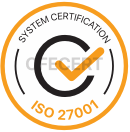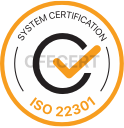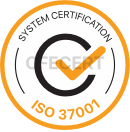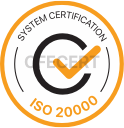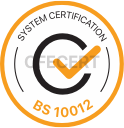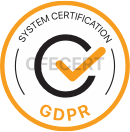The rapid evolution of artificial intelligence systems is fundamentally transforming data-driven decision-making in the business world. In an environment increasingly shaped by algorithms, operating within a secure and ethically grounded framework is no longer optional—it is a core requirement for both operational integrity and social responsibility. At this crossroads, ISO 23894 and ISO 27001 emerge as foundational standards for organizations navigating the digital era with confidence.
ISO 23894: A Systematic Approach to AI Risk Management
ISO/IEC 23894 provides an internationally recognized framework for identifying, assessing, and managing risks specific to artificial intelligence systems. This standard supports organizations in integrating structured risk governance throughout the entire AI lifecycle—from design and development to deployment and usage.
Grounded in principles such as inclusive stakeholder engagement, societal impact awareness, cross-functional collaboration, and transparency, ISO 23894 enables the responsible and secure implementation of AI applications.
Core Principles of ISO/IEC 23894:
-
Inclusive Stakeholder Engagement: AI risk management must incorporate diverse perspectives to promote fairness, transparency, and trust.
-
Dynamic and Adaptive: Risk strategies must evolve in tandem with the systems they govern.
-
Cultural and Social Awareness: Organizations must consider AI’s implications for privacy, equity, and human rights.
-
Transparency and Accountability: Clear oversight and decision-making processes must be in place.
-
Cross-Functional Integration: Risk thinking must span legal, technical, and governance functions.
ISO 27001: Building Organizational Resilience in Information Security
ISO/IEC 27001 enables organizations to establish, implement, and continuously improve an effective Information Security Management System (ISMS). This standard helps protect data assets while facilitating processes such as risk assessment, gap analysis, and audit readiness.
When to Use Which Standard?
-
If your organization is developing, supplying, or integrating AI systems, ISO/IEC 23894 serves as a guiding framework.
-
If your goal is to manage information security within a sustainable, systemized structure, ISO/IEC 27001 is indispensable.
-
The greatest benefit, however, comes from implementing both standards in tandem: ensuring AI systems are built with ethical, secure, and explainable foundations, while all underlying data, processes, and records are safeguarded through robust information security principles.
Competency Through CFE CERT Training
At CFE CERT, our two-day ISO/IEC 23894 training equips participants with step-by-step guidance on how to apply this standard within their organizations.
In the domain of information security, our ISO/IEC 27001-based training programs help organizations reinforce sustainable governance structures. We offer comprehensive, hands-on training in the following areas:
-
ISO/IEC 27001 Information Security Awareness
-
ISO/IEC 27001 Implementation
-
ISO/IEC 27001 Documentation
-
ISO/IEC 27001 Internal Auditor
-
ISO/IEC 27001 Lead Auditor
-
ISO/IEC 27001 Lead Implementer
These programs combine theoretical knowledge with practical exercises, empowering teams with both the insights and operational reflexes needed to implement secure and sustainable systems.
With a strong focus on risk management awareness, ethical compliance, and long-term governance, these trainings form the strategic backbone of next-generation organizations.
Securing the future starts with systematically managing today’s risks.
ISO 23894 and ISO 27001 are the two strategic pillars of this journey.
For more information, feel free to contact us at sales@cfecert.co.uk.



